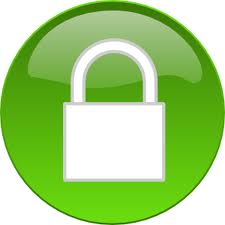
Rndballref
20 Years Experience
Chicago, IL
Male, 60
For twenty years I officiated high school, AAU and park district basketball games, retiring recently. For a few officiating is the focus of their occupation, while for most working as an umpire or basketball referee is an avocation. I started ref'ing to earn beer money during college, but it became a great way to stay connected to the best sports game in the universe. As a spinoff, I wrote a sports-thriller novel loosely based on my referee experiences titled, Advantage Disadvantage
A troublesome judgement call is whether a foul, typically near the end of a game, is intentional or not. The whole gym knows that a team wants to foul to stop the clock in a tight game but for some officials, if the defender is "going for the ball" no intentional foul is called. Intentional fouls carry a higher penalty in National Federation High School Rules. So it is called inconsistently. A potential rule change is instead of penalizing free throws and the ball, I would make the penalty free throws OR the ball.
As far as I know there is no mechanic for overturning calls officially except in state tournaments where replay might be allowed for end of quarter timing calls (before or after buzzer), with the exception of 5 correctable errors as defined in the federation rule book. These 5 errors are things like reversing an erroneously awarded free throw, etc.. In all other cases overturning calls should be discussed in the referee's pregame in the lockerroom. Some guys take the position that they never want to be overturned. My preference, and I always told my partners this, is if my partner disagrees with my call do the following: 1) blow the whistle and stop the game, 2) privately tell me what you saw and why you disagree with the call, and 3) I will decide whether to overturn based on what I saw and what you told me. That way, no one is overturning anybody else - the calling official is given the chance to reverse.
Yes, it is often unfair that a coach's actions can influence or cost their team a game, but it is also unfair that a coach can use the referees and a T to motivate his team. I had a coach draw me closer and quietly tell me that he wanted a T. I wouldn't call it, so then he stepped back and ultimately swore at me, earning him the T. Then his team turned on the juice and blew the other team out. So, I guess it goes both ways.
The fans pay for the best players to be on the floor. If you allow rough play and don't penalize it, then why not add a "goon" (ala hockey of old) to knock the stars out of the contest. The NBA surely looks at superstars as assets which generate revenue, so I agree with being harsh with hurtful play.
Social Network Security Manager
 Can you describe the average Internet troll?
Can you describe the average Internet troll?
Personal Stylist & Life Coach
 What makes someone qualified to life-coach someone else?
What makes someone qualified to life-coach someone else?
Magician
 What's the most amazing magic trick you've ever seen?
What's the most amazing magic trick you've ever seen?
If the clock started when the ball crossed into the court, a team could stall, for example, by throwing the ball high in the air across the gym and out of bounds without any player having a chance to catch the ball. Or, from the front court on an out of bounds play you could pitch the ball into the backcourt and stall off a few seconds, without any player touching the ball. The clock rightfully starts when an in-bounds player touches the ball.
I saw a 6 foot freshman dunk in the middle of the 4th quarter in a tight game. It was shocking.
Two things: 1) fans often mistake legitimate basketball moves when the player goes slowly - especially when a player down low pivots, steps and lifts the pivot foot. This is a legitimate basket move (otherwise you would never be able to shoot a layup). 2) The call most missed (maybe it is just my pet peeve) is the Jordan move of giving up your pivot foot before starting your dribble. This gives a tremendous advantage to the offensive player, and is very difficult to defend.
-OR-
 Login with Facebook
Login with Facebook (max 20 characters - letters, numbers, and underscores only. Note that your username is private, and you have the option to choose an alias when asking questions or hosting a Q&A.)
(A valid e-mail address is required. Your e-mail will not be shared with anyone.)
(min 5 characters)
By checking this box, you acknowledge that you have read and agree to Jobstr.com’s Terms and Privacy Policy.
-OR-
 Register with Facebook
Register with Facebook(Don't worry: you'll be able to choose an alias when asking questions or hosting a Q&A.)